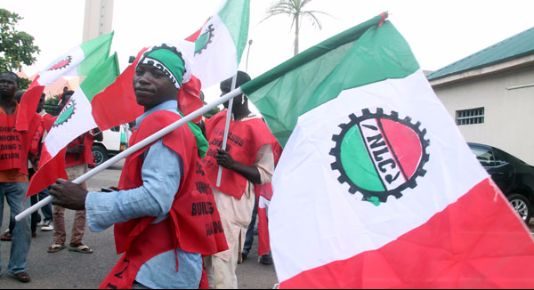July 18,2022
WORKERS AND YOUTH SOLIDARITY NETWORK
PRESS STATEMENT
NIGERIANS SHOULD JOIN NLC DAY OF ACTIONS IN SUPPORT OF ASUU STRIKE
WE REAFFIRM OUR PRINCIPLED SUPPORT FOR ASUU, SSANU STRIKES
UNITED WE STAND DIVIDED WE FALL!
Workers and Youth Solidarity Network supports the days of actions announced by the Nigeria Labour Congress (NLC), according to the Press statement jointly signed by the President of NLC, comrade Ayuba Wabba, and the General Secretary, comrade Emmanuel Ugboaja. They stated that in the National Executive Council (NEC) meeting of the Congress on June 30, 2022, they agreed for solidarity protests on July 26th, 2022 and July 27th, 2022. These protests will take place in all State capitals across the country and Abuja, the Federal Capital Territory. Take off point for the Abuja protest is at the NLC Secretariat. We Salute the NLC solidarity action, but we think it was long overdue. We salute the courage of the NLC to finally name a day of actions and we call on Nigerian students that are tired of staying at home, the working masses whose children are badly affected by the stalemate and parents to come out en masse to force the Buhari/APC government to meet the demands of Academic Staff Union of University (ASUU) and other striking unions.
Few days ago, the Nigerian president said
“We hope that ASUU will sympathise with the people on the prolonged strike. Truly, enough is enough for keeping students at home. Don’t hurt the next generation for goodness sake”
Workers and Youth Solidarity Network finds this statement outrageous. It is an attempt to blame ASUU for the prolonged character of the strikes, instead of putting the blame where it belongs, to the Federal Government for not meeting the demands of the striking unions. The continuation of this deadlock has stopped activities in public universities and has pushed over one million students out of school, only because the government refuses to accept some basic demands.
The Federal Government has feezed the payment of salaries of the striking education workers, through its ‘no work-no pay’ policy. We have condemned this. We believe that Nigeria has enough wealth to fund its education. Nigeria education funding is under 10% of the budget, while the United Nations Educational, Scientific and Cultural Organization UNESCO recommends 15-20%. But the corrupt capitalist politicians that have got their hands on Nigeria’s resources prefer to spend it on cosmetic projects and dubious contracts. This explains why strikes remain the last option for unions and workers.
The Nigerian ruling class is well known for sponsoring their children to go to schools in the rich industrialised countries, where they pay huge amounts of money. Recently, it was reported that Mohammed Sani Badaru, the son of Jigawa state Governor, Badaru Abubakar, has graduated from Brunel University in London, UK. This comes few days after the pictures of the graduation of Governor Nyesom Wike’s son flooded the internet, who has just graduated from another United Kingdom university. It’s not new that the children of the rich were having a ride from elite schools into universities abroad with looted public money, while the children of ordinary people are badly affected by the shutdown that the government generated.
We believe that the government has enough money to fund education, even beyond the current demands of the education sector unions for a one-off funding intervention in the sector.
As we speak, 11,800 political appointees in Nigeria are living a provocative life style with public resources through their outrageous remuneration and inflated cost of contracts or outsourcing of government’s projects. The same government provided the controversial Integrated Payroll and Personnel Information System (IPPIS) that enabled corruption in the payments system. One of the major reasons for the deadlock of the strike was that the University Transparency Account System (UTAS), presented by ASUU as an alternative payroll system, was refused by the FG.
The WYSN holds that the root cause of the problem of education in Nigeria today is the false priorities of the capitalist system itself. That explains why the government neglects funding education sectors that are important to ordinary people, and instead funds big capital, the monopolies and the multinationals.
This is why the struggle for education and better living conditions for workers must be linked with the general struggle of the working people and masses to get rid of this system.
To finally end this crisis, we must fight for unity of workers, students and youth, in order to mobilise against the government. At the same time, we need to build a mass workers political alternative, armed with socialist policies, which will advance the struggle to end capitalism and install a workers and poor people’s government.
Sammy Owot
07065184322
Secretary
Workers and Youth Solidarity Network



